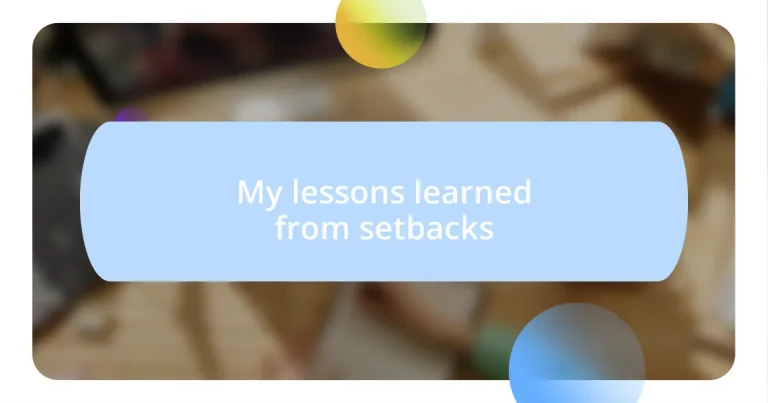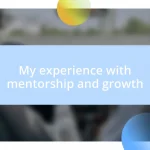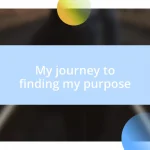Key takeaways:
- Setbacks serve as pivotal points for personal growth and resilience, revealing hidden strengths and new opportunities.
- Taking personal responsibility for failures fosters empowerment and encourages valuable reflections for future improvement.
- Embracing feedback and criticism transforms challenges into learning experiences that enhance skills and clarity.
- Setting actionable, realistic goals after setbacks helps regain control and paves the way for future success.
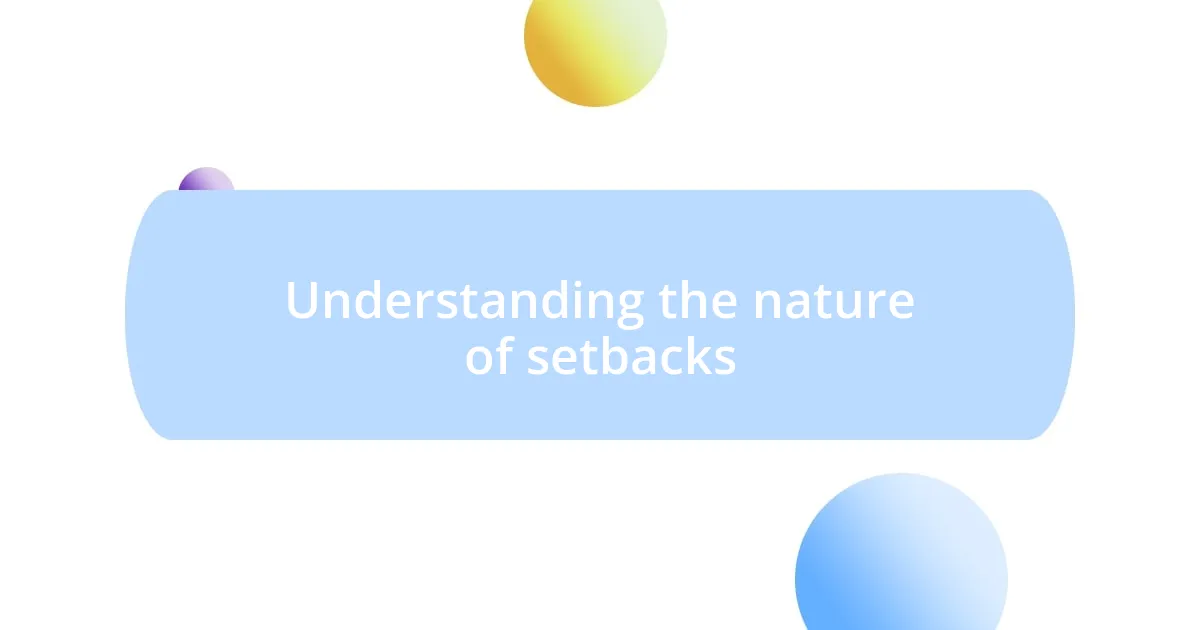
Understanding the nature of setbacks
Setbacks often feel like punchlines in the story of our lives, don’t they? I remember a time when I missed out on a coveted job opportunity that I had worked so hard for. Initially, it felt like the end of the road, but as I reflected, I realized setbacks are not just barriers; they serve as pivotal points that force us to reevaluate our paths and aspirations.
What’s fascinating to me is that setbacks unveil our resilience. When I faced an unexpected financial challenge, it pushed me to learn budgeting skills I had never considered before. This experience taught me that setbacks, while painful, can ignite personal growth in ways we might never anticipate, turning despair into discovery.
In my experience, setbacks challenge our perspectives. Have you ever noticed how a failed project can reveal new opportunities or connections? Each setback I’ve encountered reshaped my understanding of success, reminding me that the journey is just as valuable as the destination. It’s a dance of stepping back to leap forward, isn’t it?
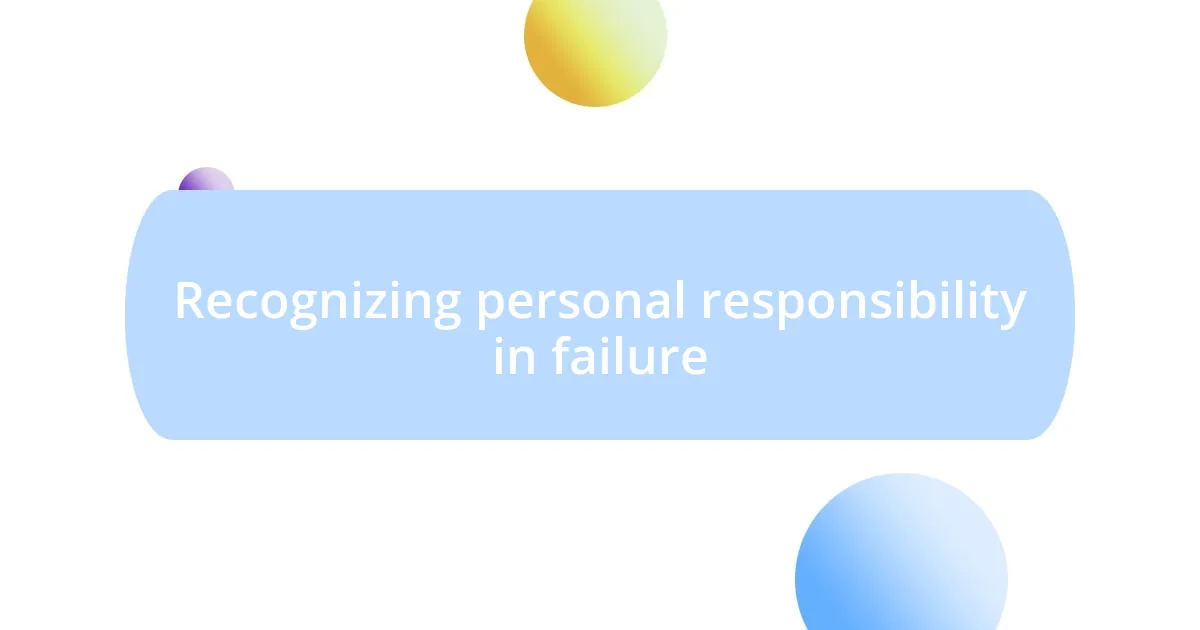
Recognizing personal responsibility in failure
Recognizing personal responsibility in failure is crucial for personal growth. I’ve often found myself at the crossroads after a setback, thinking about what went wrong. It’s easy to play the blame game and point fingers at circumstances or others. However, taking a moment to self-reflect and ask, “What could I have done differently?” is where true learning begins.
There was a time when my project failed due to inadequate planning. At first, I wanted to blame my team and external factors. But eventually, I came to realize that I hadn’t communicated my vision effectively. Acknowledging my role in the failure was tough, but it allowed me to learn the importance of clear communication in teamwork. The moment I accepted my responsibility, I unlocked the potential for personal development.
Reflecting on our failures can often feel uncomfortable, yet it’s this discomfort that fuels our growth. When I decided to own my mistakes, I shifted my mindset from victimhood to empowerment. Suddenly, I was no longer just experiencing setbacks; I was actively transforming them into valuable lessons for the future. Isn’t that a powerful change?
| Aspect | Personal Responsibility |
|---|---|
| Outcome | Growth through Acknowledgment |
| Blame | Stagnation and Resentment |
| Reflection | Empowerment and Learning |
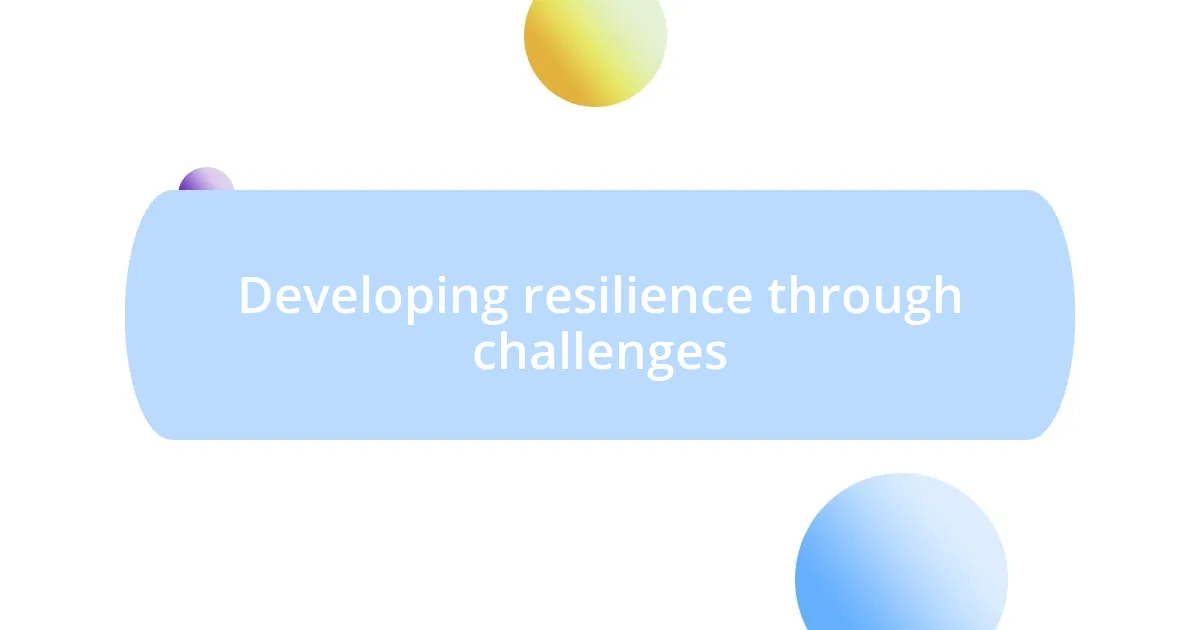
Developing resilience through challenges
When I think about developing resilience through challenges, I realize how vital it is to embrace discomfort. One of my most taxing moments was when I faced a harsh critique of my work. At first, it stung, and I questioned my abilities. But instead of shying away, I took it as a catalyst for change. I began to actively seek feedback, honing my skills and learning to view criticism as an opportunity rather than a setback. I can’t stress enough how that shift in perspective laid the groundwork for future successes.
- Challenges often unveil our hidden strengths.
- Embracing discomfort fosters personal growth.
- Seeking feedback transforms criticism into a learning tool.
- Overcoming challenges builds confidence.
- Each hurdle faced becomes a stepping stone for resilience.
Resilience doesn’t come from avoiding challenges; it’s forged in the fire of overcoming them. During a difficult stretch in my career, I encountered a major setback with a client. Instead of giving up, I leaned into the experience, digging deep to understand what went wrong. I engaged in open conversations with my team and sought external advice, all of which not only salvaged that relationship but also strengthened our collective approach moving forward. Now, I approach each challenge with a sense of curiosity, ready to learn and adapt.
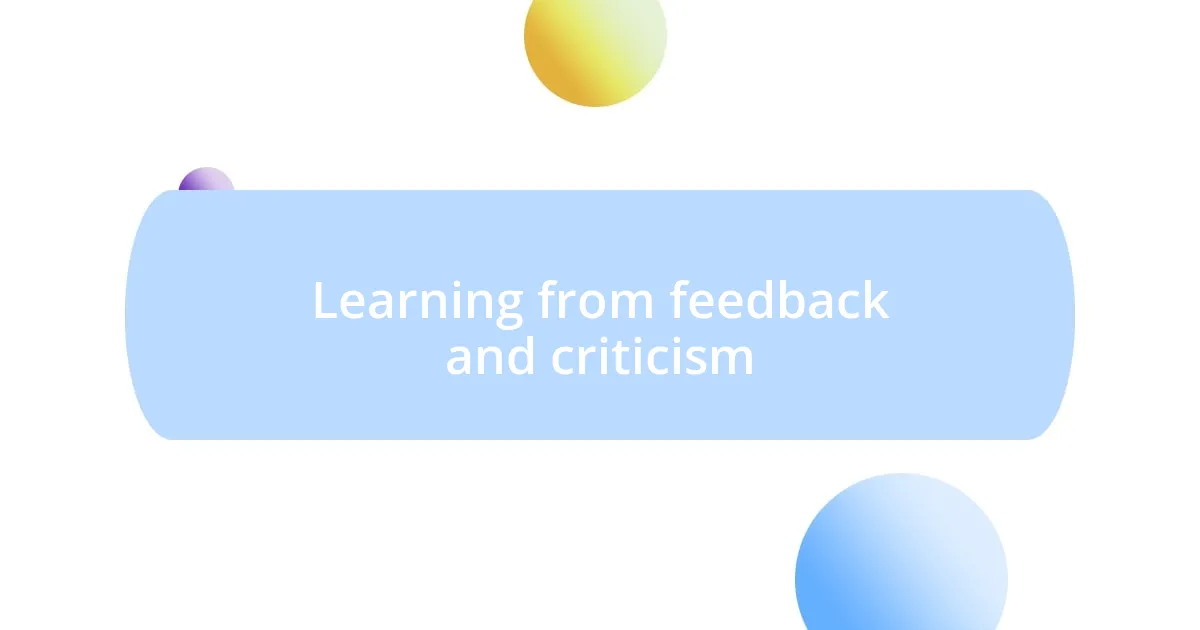
Learning from feedback and criticism
Learning to embrace feedback and criticism has been a pivotal part of my journey. I remember a time when I presented my ideas to a group, full of excitement, only to receive a barrage of critiques. At first, the defensiveness bubbled up inside me. Wouldn’t you feel the same? But then I took a step back and reminded myself that each piece of feedback was a window into how others perceived my work. This realization transformed my approach; rather than seeing criticism as a threat, I began to view it as an invitation to refine my ideas and improve.
In another instance, I sought feedback on a writing project. The comments were brutally honest, and I felt a mix of disappointment and embarrassment. However, I was determined to learn from their insights. I engaged in conversations with a few colleagues to dive deeper into their perspectives. What struck me was how they provided not just criticism, but also suggestions for improvement. This collaborative dialogue helped me grow immensely, and I often reflect on that experience when facing new challenges. Isn’t it remarkable how constructive criticism can light the path to clearer thinking and better results?
Looking back, I’ve come to appreciate how vital feedback is in shaping our growth. I’ve found it aligns beautifully with personal accountability; when I actively seek it out, I take charge of my own development. It transforms the fear of failure into a quest for knowledge. That shift in thought has made navigating my setbacks not just bearable, but genuinely enriching. How often do you pause to consider the value in those uncomfortable moments when others share their truths with you?
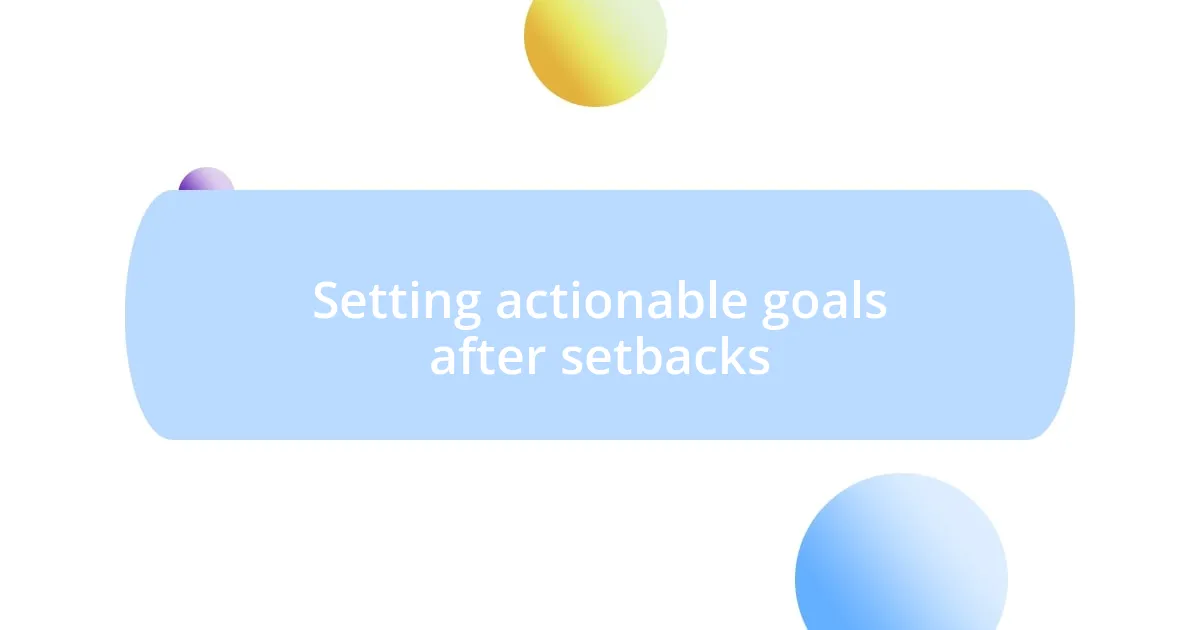
Setting actionable goals after setbacks
After experiencing a setback, it’s crucial to reframe your goals into actionable steps. I remember a time when I missed a significant deadline on a project, which felt like a personal fail. Instead of wallowing in disappointment, I broke down the tasks needed to catch up into smaller, manageable goals. This approach not only eased the pressure but also reinstated my sense of control, enabling me to focus on what really mattered.
Setting realistic and measurable goals is integral to recovering from setbacks. For example, when I found myself unprepared for a presentation, I committed to specific actions: dedicating 30 minutes daily to practice and seeking input from a trusted mentor beforehand. These clear targets transformed my anxiety into a structured plan, making what once seemed insurmountable into achievable goals.
Engaging in reflection is another vital step after a setback. I often ask myself thought-provoking questions: What went wrong? What could I have done differently? This mindset shift allows me to extract invaluable lessons from every setback. By crafting actionable goals based on these reflections, I not only pave the path to future success but also cultivate a stronger, more resilient version of myself. Have you considered how your setbacks could guide your future actions?












